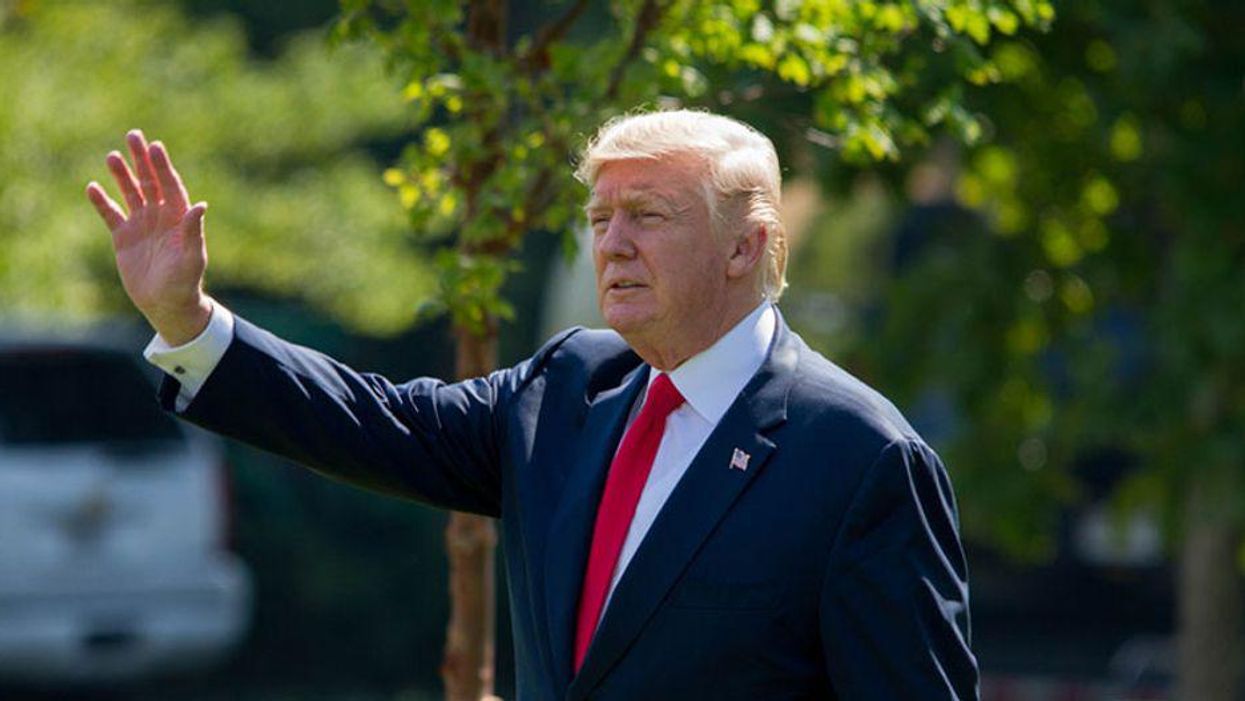This Trumpian think tank is trying to 'whitewash its resident seditionist': conservative


Amid former President Donald Trump's push to remain in power, many of his allies have developed frivolous arguments to justify his desperate actions. The defense established by the Claremont Institute was no different. In fact, an analysis published under The New Republic's "Soapbox" examined the right-leaning think tank's support of attorney John Eastman, describing it as "laughable."
Facing intense scrutiny for Eastman's advice given to Trump and former Vice President Mike Pence, Claremont's chairman Thomas Klingenstein and president Ryan P. Williams released a statement of defense on their website this week.
Per News Republic:
"The two men claimed that Eastman 'offered legal advice that has since been maliciously misrepresented and distorted by major media outlets' and that, as a result of this 'disinformation campaign,' some professional groups have 'have imposed a blackout on the Claremont Institute or on John, making it very difficult to present the truth.'"
They argued:
1) Contrary to almost universally false news accounts, which have done great damage, John did not ask the Vice President, who was presiding over the Joint Session of Congress where electoral votes were to be counted on January 6, to "overturn" the election or to decide the validity of electoral votes. John advised the Vice President to accede to requests from state legislators to pause the proceedings of the Joint Session of Congress for 7 to 10 days, to give time to the state legislatures to assess whether the acknowledged illegal conduct by their state election officials had affected the results of the election.
2) If the state legislatures had found sufficient illegal conduct to have altered the results, and as a result submitted a second slate of electors, John advised the Vice President that, despite credible legal arguments to the contrary, the Vice President should regard Congress, not the Vice President, as having the authority to choose between the two slates.
New Republic staff writer Matt Ford pushed back against their defensive with a detailed analysis of the claims. He asked: "Did Eastman "advise" that Pence could overturn the election or decide the validity of electoral votes?" Answering his own question, Ford wrote, "His [Eastman] original two-page memo points towards 'yes' on both counts. In it, Eastman theorized that Pence could break from the procedures laid down in the Electoral Count Act of 1887, skip certain Biden-won states until the others were counted, and then announce that because of 'disputes' in those states, 'there are no electors that can be deemed validly appointed in those States."
Ford went on to lay out the reasons why it appears Eastman actually did offer that advice to Pence.
He also highlighted how Eastman appeared to incriminate himself. "The first sign that Eastman is not being fully forthright here is that he flits back and forth on whether any illegal conduct actually happened," Ford wrote, adding, "The memo's proposals aimed to prevent certification of a potentially illegal election—and this is what the hounds call 'overturning the election' and urging a 'coup,'" Eastman claimed."
Ford weighed in with his observation of Eastman's words saying, "He's just speculating, folks! But an 'illegal election' does not sound so 'potential' just a few sentences earlier when he complains about election-law disputes between the Trump campaign and various state officials. 'These illegalities, without question, took place.'"
Ford added, "Why does the distinction matter? Because Eastman wants to cast his role in the lead-up to January 6 as an academic exercise on the nature of the Twelfth Amendment and the practicalities of the Electoral Count Act of 1887 instead of something closer to reality: He played a part in a plot to disrupt the orderly transfer of American power on dubious legal and factual grounds."
"I have outlined the likely results of each of the above scenarios, but I should also point out that we are facing a constitutional crisis much bigger than the winner of this particular election," Eastman wrote. "If the illegality and fraud that demonstrably occurred here is allowed to stand—and the Supreme Court has signaled unmistakably that it will not do anything about it—then the sovereign people no longer control the direction of their government, and we will have ceased to be a self-governing people. The stakes could not be higher."
Ford used Eastman's own words against him describing the scenario as "the moral equivalent of a schoolyard bully telling you to stop hitting yourself."
He surmised, "There is no evidence of any serious or significant fraud in the 2020 presidential election, let alone enough to taint the outcome. Eastman's entire argument was premised on a lie spread by Trump to deny his defeat and hold on to power regardless of what the voters wanted."
Eastman found himself at the center of controversy after memos surfaced detailing his advice to Trump and former Vice President Mike Pence about remaining in power. "In both memos, Eastman laid out a series of quasi-legal paths for Trump to retain power and have a second term despite losing the election," New Republic writes.
As a result of the memos being made public, Eastman has reportedly "lost some of his prominences in the conservative legal world." He has also been dropped from The Federalist Society's federalism and separation of powers practice group and was dropped from the American Political Science Association's annual conference.